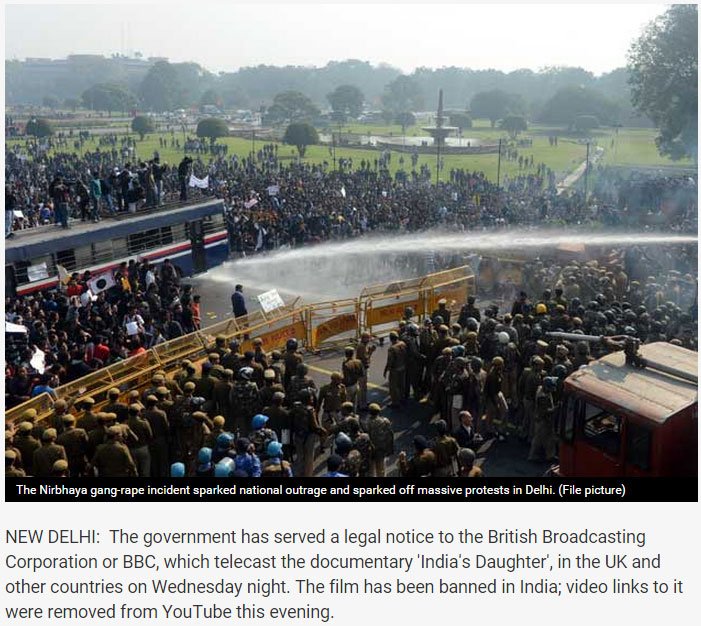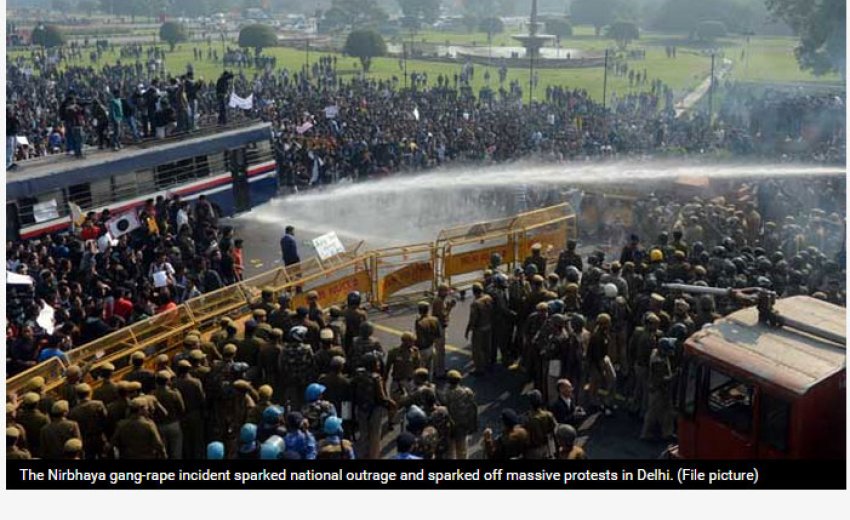Editor's note: This coming weekend and this month we celebrate International Women's Day. Violence against women is something that Sikhs have stood up against as warriors for truth and liberty. During the reign of Ahmed Shah Abdali the Khalsa heroically risked their lives and made many campaigns to free women captured to be made slaves and forced into marriages at the bidding of the rulers. Even during chaotic times of confusion women in India see turbaned Sikh men as trustworthy protectors. Part of helping women and truly creating the equality granted to us by the Guru is healing harmful attitudes towards women. There is a saying in the healing profession: "If you can feel it, you can heal it." When healing harmful attitudes it is paramount that we are able to civilly and honest talk about the subject even when it is unpleasant. The article below tells of a documentary 'India's Daughter' that some people don't want to talk about. We believe that the strength of women is the strength of the future and we hope that such discussions can continue to create healing.
Government Serves Legal Notice to BBC, Asks YouTube to Remove Nirbhaya Documentary: 10 Developments

1. Home Ministry sources said the notice, sent by the top officer at the Tihar Jail, alleges that the BBC aired the film without necessary clearrances from the Delhi prison, where filmmaker Leslee Udwin conducted an interview of Mukesh Singh, a man on death row in the 2012 Delhi gang rape case.
2. The notice, said sources, alleges that the interview has been used for commercial purposes and depicts women poorly, and so violates conditions imposed when the interview was allowed. "Our next course of action will depend on the BBC response," a senior Home Ministry official told NDTV.
3. "We had asked to not release the documentary, but BBC still released it," Home Minister Rajnath Singh said on Thursday morning. Sources said the Home Ministry had on Wednesday afternoon sent a copy of a court order prohibiting the telecast of the documentary to BBC.
4. The British broadcaster aired the documentary hours later. It said in a statement that it had brought forward the telecast from Sunday given the "intense level of interest."
5. Video links to the film, easily accessed in India, proliferated soon after. Google's video sharing site Youtube was asked by the Indian government to take them down. "As and when the police tell us of other sites who are carrying it, we are directing them to remove these," said a government official.
6. Google said in a statement, "While we believe that access to information is the foundation of a free society, and that services like YouTube help people express themselves and share different points of view, we continue to remove content that is illegal or violates our community guidelines, once notified."
7. There has been huge debate in India over the ban on the documentary in which Mukesh Singh - one of the six men who brutally gang-raped and killed a 23-year-old paramedical student in a moving bus in December, 2012 - is shown blaming the victim with a complete lack of remorse.
8. The BBC has told the Indian government, "The remarks of the perpetrator are set among a number of other views, including those of the parents, ex-or present members of the judiciary, witnesses and personal testimonies. The purpose of including the interview with the perpetrator was to gain an insight into the mind-set of a rapist with a view to understanding the wider problem of rape and not just in India."
9. It also said, "We do not feel the film as currently edited could ever be construed as derogatory to women or an affront to their dignity. Indeed, it highlights the challenges women in India face today," it said, and added, "It should be noted, although the BBC is happy to take your views into consideration, we are not planning to transmit the film in any territory which lies under Indian legal jurisdiction.
10. On Wednesday, Rajnath Singh made a statement in Parliament saying the government had got a restraining order against the screening of the film in India. He also said, "When I heard about the documentary I was hurt. Under no circumstances should this be telecast. So we got a restraining order from the court," Mr Singh said.
------------------------
Related Articles:
